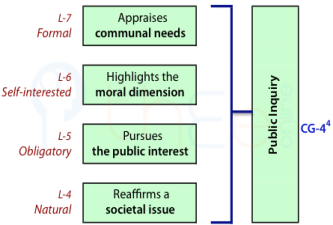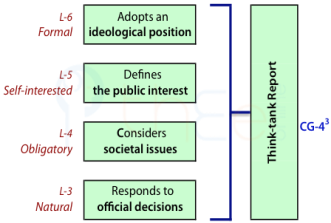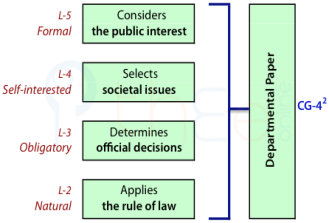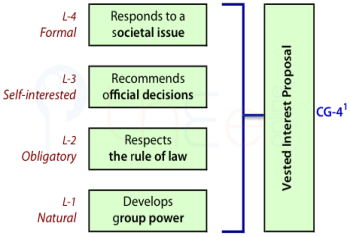More on Sources of Public Policy
By people naturally participate in the 7 arenas of …
…which are sustained and constrained by those who feel obligated to to make a difference:
In , these become adept at using some of the 6 …
…which are sustained and constrained by self-interestedly taking advantage of emerging :
In , harness one or more of the 5 …
…which are sustained and constrained by formally exploring distinct perspectives on :
In , government and society expect to benefit from 4 …
…now read on:
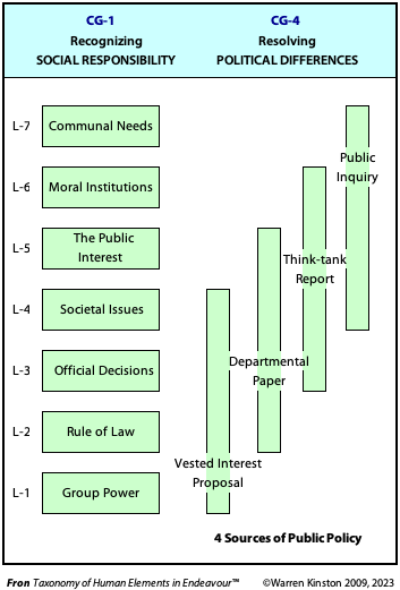
The focus here is to clarify how different get incorporated within each source of and so shape what we can expect of it.
)
Function
To produce realistic, evidence-based policy proposals which can command public support
by using
available and specially collected information, commissioning expert investigations
as well as
accepting reports and evidence from the public, interest groups and other relevant parties.
Function
To produce coherent policy proposals that are claimed to be necessary and beneficial, because of the starting assumptions (underlying paradigm or discipline) and the method of inquiry,
by using
in-house extensive and intensive research inquiries,
as well as
ongoing literature review, analyses and evaluation of existing public policies.
)
Function
To produce policy proposals that the government can fully control and claim as viable and necessary
by using
government staff, departmental data and confidential sources of advice and information.
)
Function
To produce policy proposals that are feasible and desired by the vested interest—if industry, to reduce their risk &/or increase their profits; if advocacy, to pursue and establish their values
by using
public data, industry data, basic investigations, ongoing analyses of social circumstances and evaluation of current public policies.
As should have been evident, a politically-motivated person cannot easily get ideas into policy documents. It is necessary to become formally part of one of the four systems that produce such papers. It is also rather difficult for an outsider to grapple with policy documents, once they are produced.
Formal inquiries ensure that methodical investigations of problematic situations in society are properly carried out. Issues around practically implementing recommendations are also usually considered. Read more about sound inquiry methods.
Policy documents once produced are available for comment from any interested group or person as part of consultation. However, studying and appraising the documents, often with numerous technical Appendices, is usually rather difficult, even for experts.
Appraisal is difficult because any worthwhile recommendations to deal with societal complexities are themselves inherently complex—which was why they needed handling in a formal way.
Powerful groups often have specialists employed to study policies, and their responses are naturally given due attention. Because a person does not exist for society, respect by authorities for any single person’s comments, however pertinent or wise, is usually negligible.
The method and people chosen for developing often seem to determine the outcome far more than social realities, communal aspirations or practical possibilities.
Quite apart from any deliberate bias, ideological intrusion or deliberate sabotage, any policy recommendation based on inquiry will be affected by:
- the preferred and chosen method(s) of inquiry;
- mindsets about the proper relationship between the government and the public;
There may be limited awareness of either of these two psychosocial factors.
- Read about inquiry methods used to generate policy; and
- Consider the effect of mind-set on policy-generating inquiry.
Originally posted: August-2009; Last updated: 15-Nov-2011
